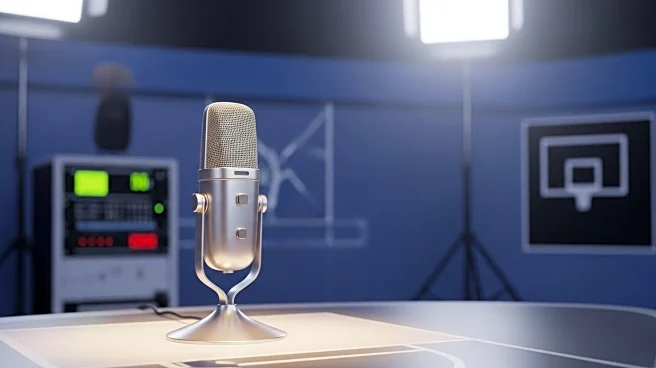What is the story about?
What's Happening?
Doris Burke, a prominent ESPN broadcaster, has been demoted from the network's No. 1 NBA broadcasting team. Burke, who has been with ESPN since 1990, made history in 2024 as the first woman to serve as an in-game TV analyst for the NBA Finals. Despite her groundbreaking role, Burke faced criticism during the 2025 NBA Finals, leading to calls for her replacement. ESPN has decided to promote Tim Legler, a longtime analyst with the network, to the top broadcasting team alongside Mike Breen and Richard Jefferson. Burke's demotion has sparked mixed reactions among NBA fans, with some expressing disappointment and others supporting the decision.
Why It's Important?
The demotion of Doris Burke marks a significant shift in ESPN's broadcasting strategy for the NBA Finals. Burke's role as a trailblazer for women in sports media has been widely recognized, and her removal from the top team may impact perceptions of gender equality in sports broadcasting. Tim Legler's promotion reflects ESPN's confidence in his analytical skills and experience, potentially influencing the network's future coverage style. This decision could affect viewer engagement and the network's reputation, as fans have expressed varied opinions on the change.
What's Next?
With Tim Legler joining the No. 1 NBA broadcast team, ESPN may experience changes in its coverage dynamics. The network will likely monitor audience reactions to the new lineup during the upcoming NBA season. Doris Burke's future role at ESPN remains uncertain, but she may continue to contribute in other capacities. The decision may also prompt discussions within the industry about diversity and representation in sports media, potentially influencing hiring practices and broadcast team compositions.
Beyond the Headlines
Burke's demotion raises broader questions about the challenges faced by women in sports broadcasting. Her pioneering role has inspired many, but the decision to replace her highlights ongoing issues of gender bias and the pressure to maintain high performance standards. This development may encourage networks to reassess their commitment to diversity and inclusion, potentially leading to more opportunities for women and minority groups in prominent broadcasting roles.
















